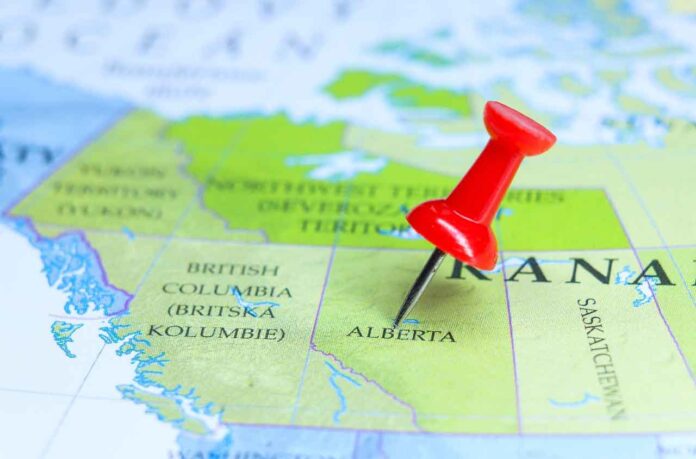Canada’s online gambling landscape is poised for a significant transformation as Alberta announces plans to open its market to private operators following the approval of Bill 16 last May. This move will align the province with Ontario’s lucrative business model, which generated an impressive $2.4 billion in gaming revenue during its first year. In a bid to replicate this success, Alberta is already attracting interest from major private operators, including industry giants DraftKings and FanDuel, setting the stage for a more competitive market.
Currently, there is only one legal online gambling site in the province of Alberta, Play Alberta, which is operated and monitored by Alberta Gaming, Liquor and Cannabis (AGLC). It offers casino-style games, live dealer table games and even sports betting which are similar to the game selection players in other provinces can enjoy when registering with NoDepositCasino.
Grey Market Woes
Alberta has been grappling with a growing presence of illegal gambling operators. Estimates suggest that around 55% of the province’s iGaming market is controlled by unregulated platforms that evade taxes and operate without local oversight. In response, Alberta plans to open its market to private operators, aiming to combat this issue by creating a safer, regulated environment.
While Play Alberta, the province’s sole legal online sportsbook, has experienced significant growth—capturing over 45% of the iGaming market—unregulated operators continue to dominate a large portion of the industry. For example, “grey” market sites like Stake gained attention when rapper Drake placed a $500,000 bet on the Edmonton Oilers.
Despite this competition, Play Alberta has continued to expand, with more than 313,000 registered accounts and $5.36 billion in bets processed for the fiscal year ending March 31. The platform generated $179 million in net sales, contributing to Alberta’s General Revenue Fund, which supports vital programs and services. Through the introduction of private operators, Alberta hopes to reclaim the unregulated portion of the market and further boost these contributions.
Path to Success
Alberta aims to leverage this expansion to shift players away from unregulated grey market operators and capture a larger share of the growing industry, turning online gambling into a reliable revenue stream for the province.
A report from the Alcohol and Gaming Commission of Ontario revealed that prior to Ontario’s regulated market launch, about 70% of online gaming occurred on unregulated sites. Following the introduction of regulated platforms, approximately 86% of respondents reported using these legal sites, demonstrating a successful transition to a safer, more regulated environment. Alberta seeks to replicate this success by encouraging more players to choose legal options and enhancing overall market integrity.
By adopting a regulated framework similar to Ontario’s, Alberta aims to offer safer gambling options while boosting provincial earnings. This significant shift in Alberta’s approach to online gambling has the potential to elevate the industry and address challenges posed by unregulated operators. Currently, the AGLC captures only about half of the market share. The expansion is designed to create a robust, regulated environment that attracts both operators and players, ensuring a more secure and responsible gambling experience. The new framework will differ from the existing Play Alberta model, addressing past concerns about sharing player information with competitors.
Player Protection
Regulation is key to mitigating the risks associated with online gambling, and Alberta is looking to enhance player protection by replicating Ontario’s self-exclusion system. Online gambling can lead to addiction for some individuals, impairing their ability to control their gambling habits despite negative consequences. Safeguards like self-exclusion, which allows players to ban themselves from all gambling sites at once, provide a more comprehensive approach to managing risky behavior than systems that apply only to individual casinos.
While Ontario currently offers self-exclusion options for specific sites, a province-wide system is in development to make the process more effective and easier to use. Alberta aims to adopt a similar model in its expanded market, providing players with stronger tools to manage their gambling activities.
Ontario’s experience with a regulated market underscores the importance of a strong self-exclusion system and thoughtful regulation around advertising. Alberta will need to carefully consider how it structures its revenue-sharing model with operators. In Ontario, the government takes a 20% share of regulated gambling revenues, striking a balance between attracting operators and generating provincial income.
As gambling remains popular among Alberta’s adult population, effective regulation will be crucial in managing the growing market responsibly while ensuring player protection remains a top priority.







